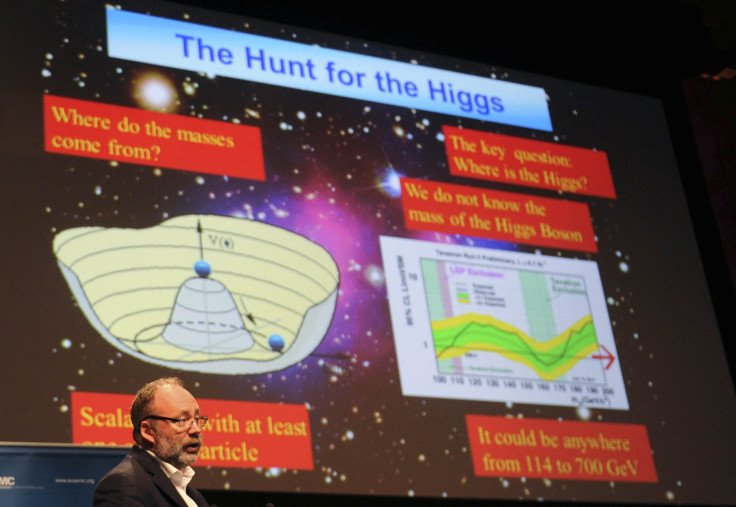'God Particle' Still Elusive? New Research Casts Doubt Over Discovery Of Higgs Boson

A team of researchers from the University of Southern Denmark have questioned whether the particle discovered by scientists at the European Organization for Nuclear Research, or CERN, in 2012, is the elusive Higgs boson, casting doubts over what was hailed as a major breakthrough in fundamental physics. The Higgs boson, also called the “God particle,” is believed to be the source of the Higgs field, which provides mass to all other sub-atomic particles.
“The CERN data is generally taken as evidence that the particle is the Higgs particle. It is true that the Higgs particle can explain the data but there can be other explanations, we would also get this data from other particles,” Mads Toudal Frandsen, a particle physicist at the university, said, in a statement. “The current data is not precise enough to determine exactly what the particle is. It could be a number of other known particles.”
The team of researchers claimed that the particle discovered at the Large Hadron Collider, or LHC, could be another unique theoretical particle called the "techni-higgs."
“This particle is in some ways similar to the Higgs particle - hence half of the name,” Frandsen said, in the statement. However, he added, the two particles point toward two completely different theories attempting to explain the origin of the universe.
“A techni-higgs particle is not an elementary particle (a particle that cannot be divided into smaller components). Instead, it consists of so-called techni-quarks, which we believe are elementary. Techni-quarks may bind together in various ways to form for instance techni-higgs particles, while other combinations may form dark matter. We therefore expect to find several different particles at the LHC, all built by techni-quarks,” Frandsen said.
“If techni-quarks exist, there must be a force to bind them together so that they can form particles,” Frandsen said. “None of the four known forces of nature are any good at binding techni-quarks together. There must therefore be a yet undiscovered force of nature.”
If confirmed, the new findings would come as a major disappointment for the scientists at CERN, as the discovery of the Higgs boson was considered a major boost to the Standard Model of particle physics, which lays out the basics of how elementary particles and forces interact in the universe.
Scientists believe that the Higgs boson is the particle that gives all matter its mass and its discovery had filled one of the major gaps in this theory.
© Copyright IBTimes 2024. All rights reserved.






















